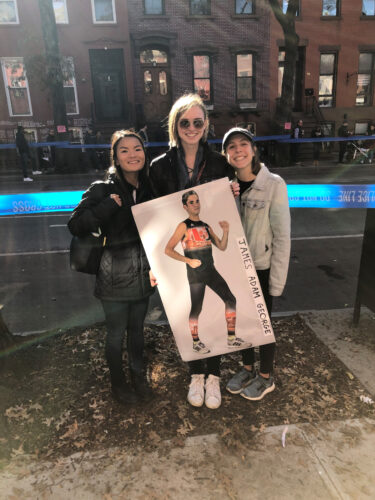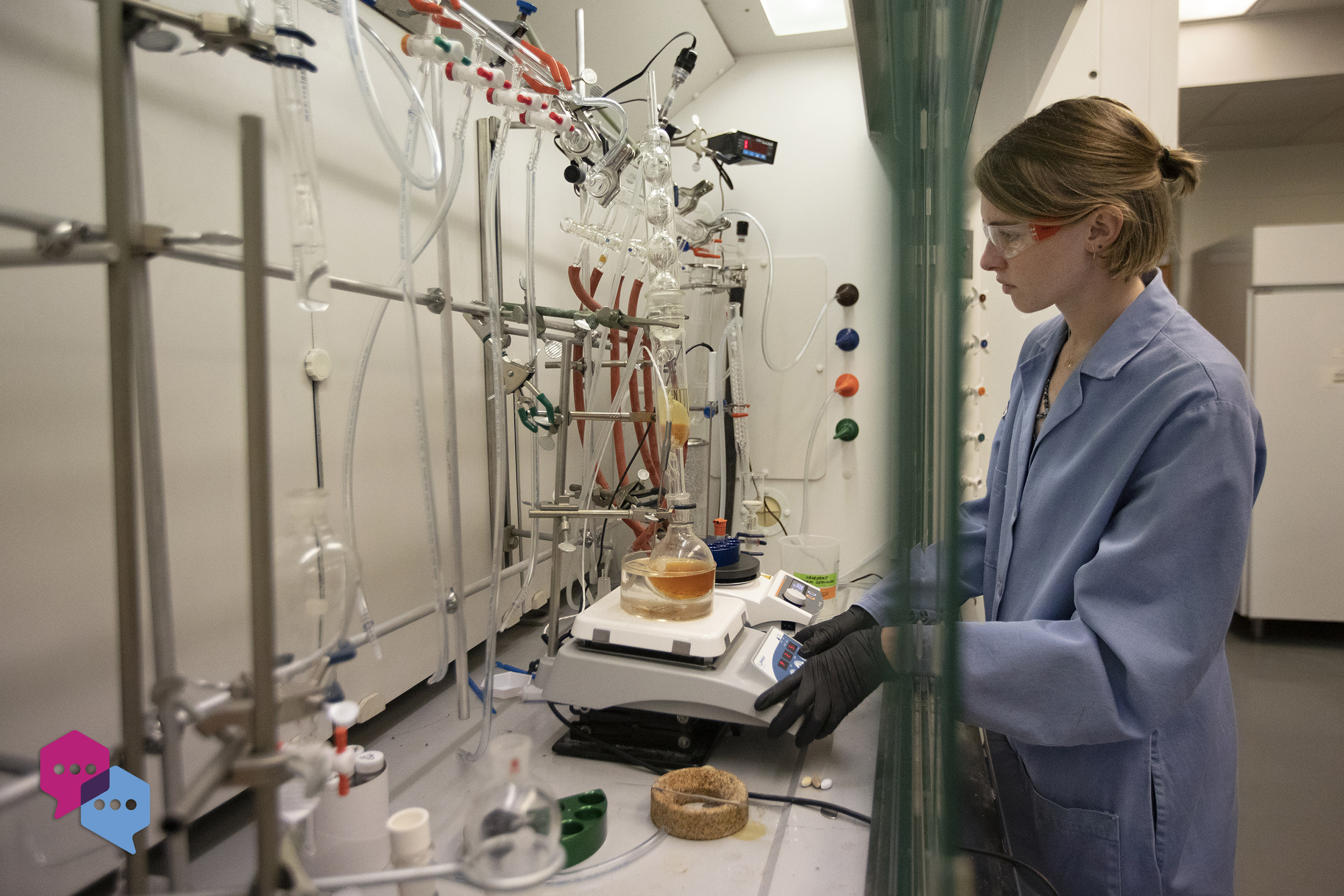Q: When you were a child, what was your response to this question: “What do you want to be when you grow up?”
A: A chocolatier. As a child, the thought of making chocolate for a living seemed almost magical. It’s as much a science as an art — it’s truly chemistry and materials science. In a way, I haven’t deviated too much from my childhood dream, although my experiments certainly aren’t edible.
Q: Share the pivotal moment in your life that helped you choose your field of study.
A: I don’t think there was any one lightbulb moment, but after years of playing with recipes and substituting different ingredients to optimize the final product, I realized that bench chemistry is really similar to baking.

In Fall 2019, Manning (center) and her friends Lily Wittle (left) and Gabrielle Hesslau spectated the New York City Marathon. Manning hopes to run the marathon sometime in the next few years.
Q: Tell us about a time you encountered a tricky problem. How did you handle it and what did you learn from it?
A: My research on materials for water remediation is grounded in polymer chemistry, but I often feel like an analytical chemist or environmental engineer — in other words, out of my comfort zone. I once spent weeks collecting data to understand how much of a contaminant my material could remove, but, when I analyzed the data, the maximum capacity I calculated was negative — an impossible result. After days spent troubleshooting, I sent a group text to friends from different labs in the chemistry department that amounted to: “Help, I’m stuck, does anyone know about this problem?” Within minutes, a physical chemist — and dear friend — responded with a tool powerful enough to analyze my raw data.
I couldn’t solve that problem on my own, but I knew a colleague with the appropriate tools. The more I work toward my PhD, the more I’ve learned to ask for help when I need it, because tackling challenges usually requires more than one point of view and asking for help usually saves a lot of time and struggle.
Q: Describe your research in 5 words.
A: Sticky materials capture nonstick pollutants.
Q: What are your passions outside of research?
A: I’ve been a runner for over 12 years. I come back to it every day for a chance to clear my head and get fresh air. Running reminds me of the bigger picture. After over a decade, I’ve had injuries, trials, periods of success and failure. Sometimes, progress seems slow, and it’s tough to get out the door. Yet, if I look back on how those miles have added up over the years, I can see clearly how much stronger and faster I am now. I try to think about my career as a chemist in the same way: If you stick with it, you’ll end up far ahead of where you started.


